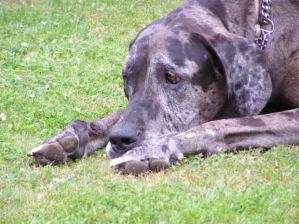Several states have legislation pending that would create animal abuser registries similar to child abuser and sex offender registries. An animal abuser registry would list individuals convicted of felony animal abuse or who committed certain violent offenses against animals.
Intentional animal cruelty is of particular concern as it is a sign of psychological distress and often indicates an individual may be predisposed to committing acts of violence toward humans. Since animal abuse is often an early sign of potential human abuse, tracking animal abusers would help protect not only the animals of a community but also the people. Therefore, creating and maintaining a registry of individuals convicted of felony animal cruelty can be an asset in identifying potential criminal behavior.
Many studies in psychology, sociology, and criminology have demonstrated that violent offenders frequently have childhood and adolescent histories of serious and repeated animal cruelty. Additionally, mental health professionals and top law enforcement officials consider the blatant disregard for life and suffering evidenced by all forms of cruelty to animals to be an unquestionable warning sign. In fact, the American Psychiatric Association identifies cruelty to animals as one of the diagnostic criteria for conduct disorders; and the FBI uses reports of animal cruelty in analyzing the threat potential of suspected and known criminals.
In addition, such registries could be valuable in tracking people who engage in illegal animal fighting, such as cockfighting and dog fighting; hoarders; and those who run puppy mills.
The following states have legislation pending:
Arizona – SB 1161
Connecticut – HB 5205
New York – S2305A
Hawaii – SB 0528
Oregon – HB 2394
Pennsylvania – HB 0265 and SB 0320
South Carolina – HB 3045
Vermont – S 0009
Virginia – HB 2242
NHES urges the citizens of these states to contact their legislators and encourage them to support a felony animal abuser registry in their state.
Related Posts:
Animal Abuser Registries, June 2012
Animal Abuser Registries, Feb 2012
Animal Abuser Registries, Jan 2011









